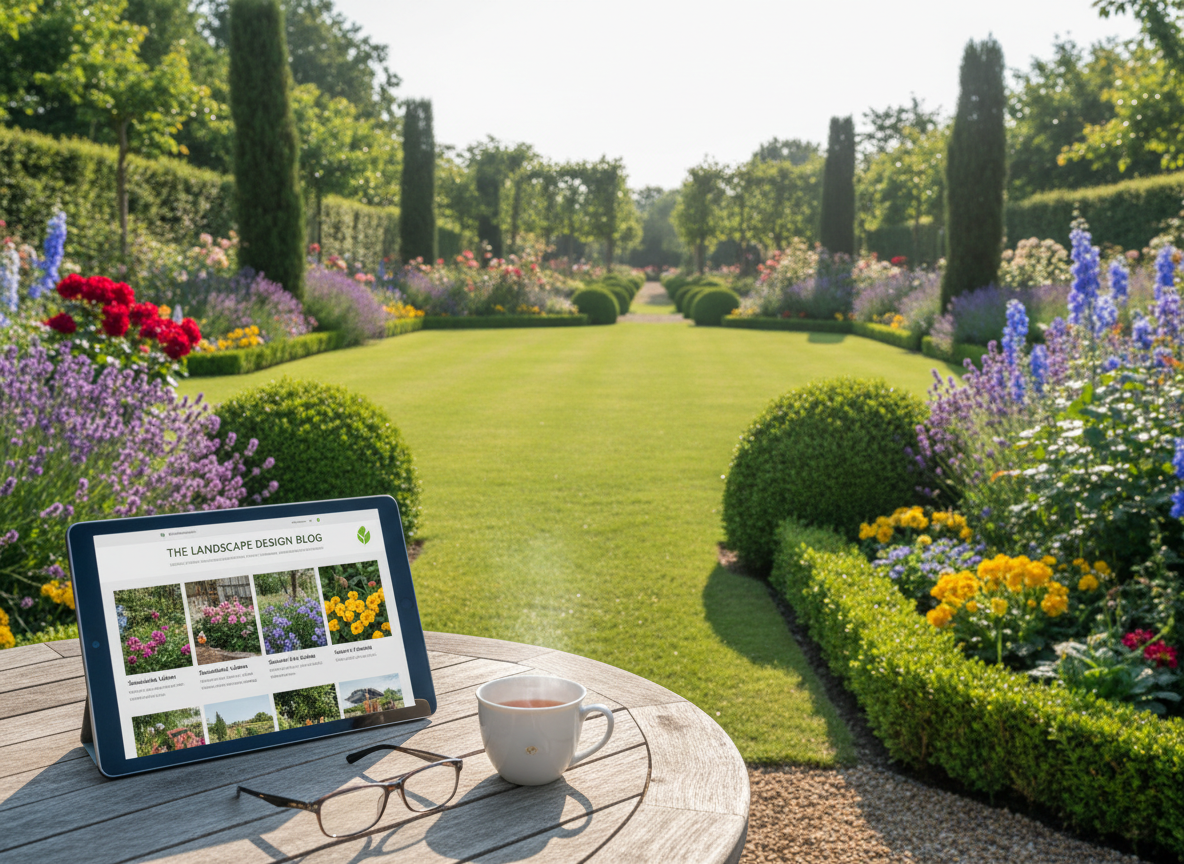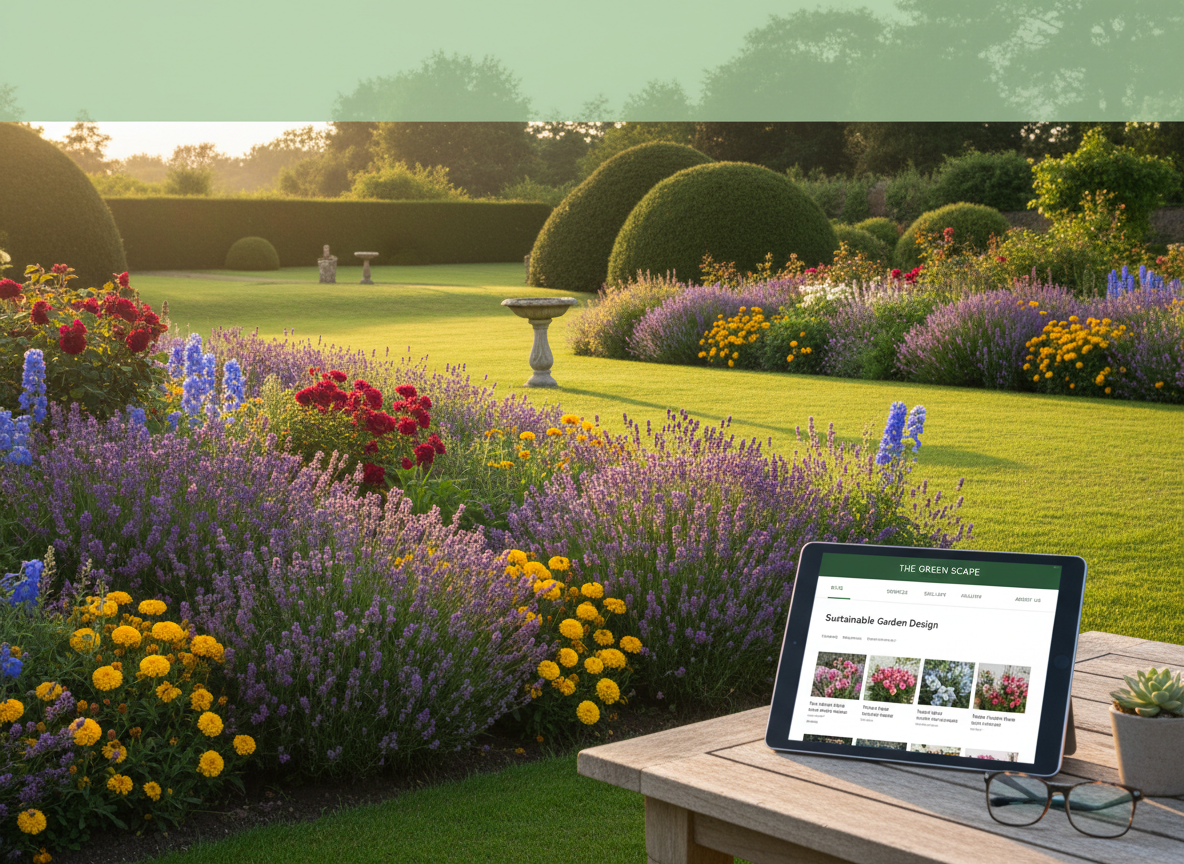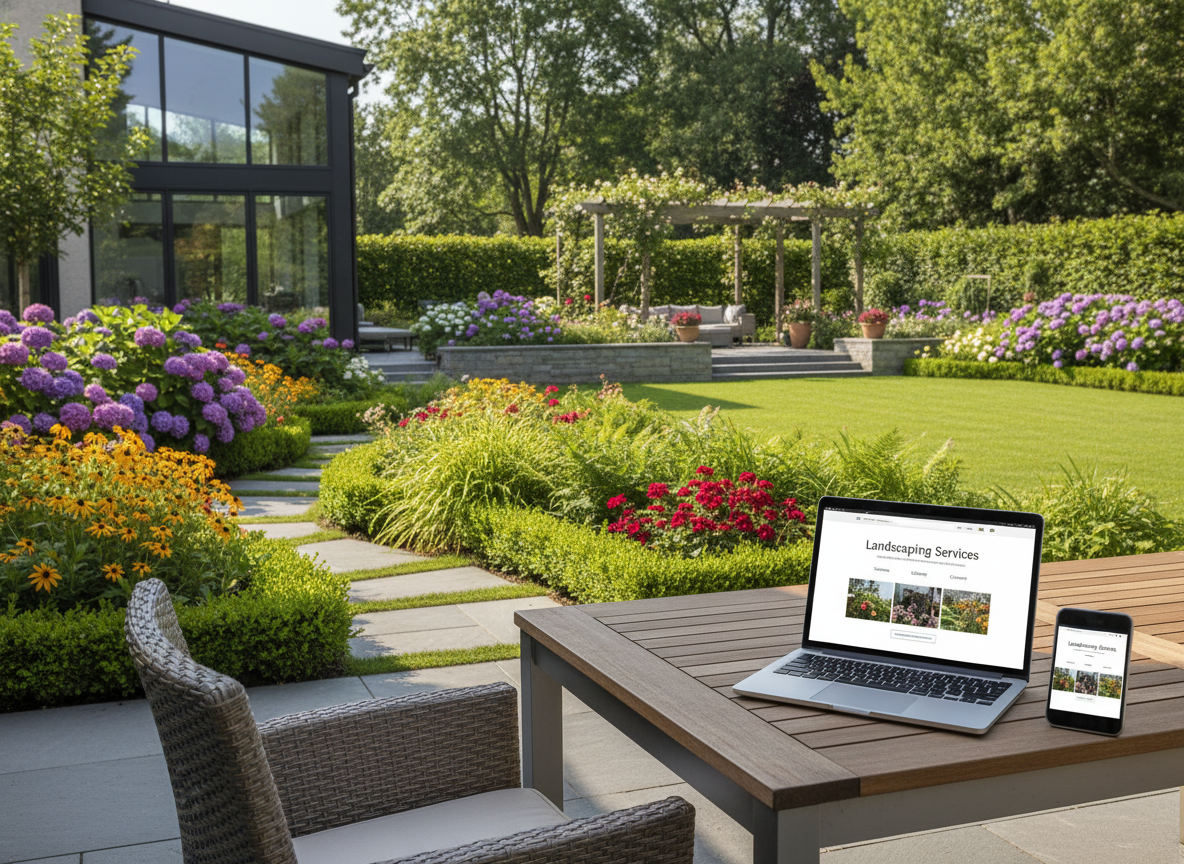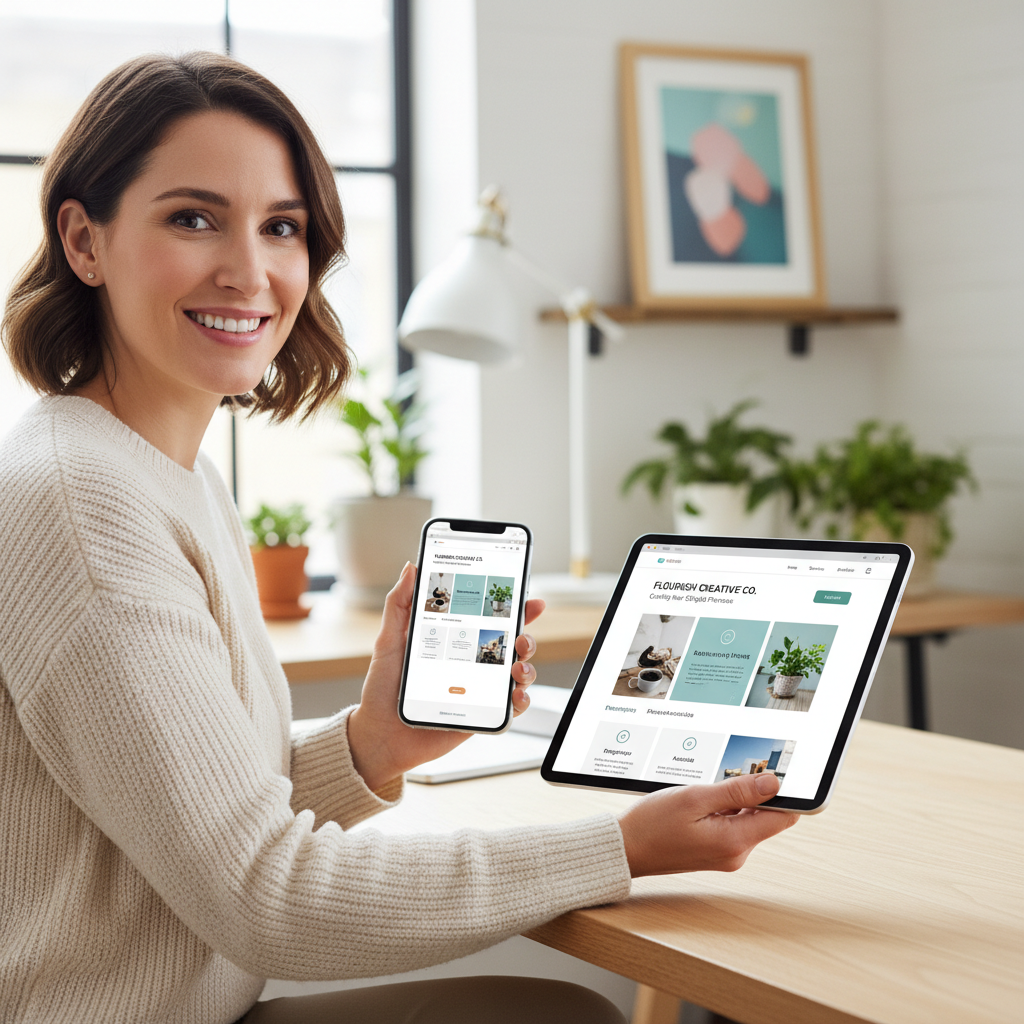When Does A Small Business Actually Need A Mobile App
When Does A Small Business Actually Need A Mobile App?
Many small business owners hear the same question at networking events and from curious customers: “So, when are you launching an app?” It sounds exciting, it sounds modern, and it can also feel slightly intimidating. The real challenge concerns usefulness rather than possibility. An app only helps when it actually improves the experience.
A mobile app can feel like a badge of seriousness, yet that alone is not enough reason to invest time and money. The better question is simple. At what point does an app genuinely improve life for your customers and make day to day operations smoother for you?
To answer that, it helps to look at a few practical decision points. In particular, repeat customers, bookings, loyalty, push notifications, and ecommerce. Each one reveals a different side of the “Do we actually need an app?” conversation.
Along the way, you will see how real mobile behaviour influences those decisions, which might change how you think about your own digital presence.
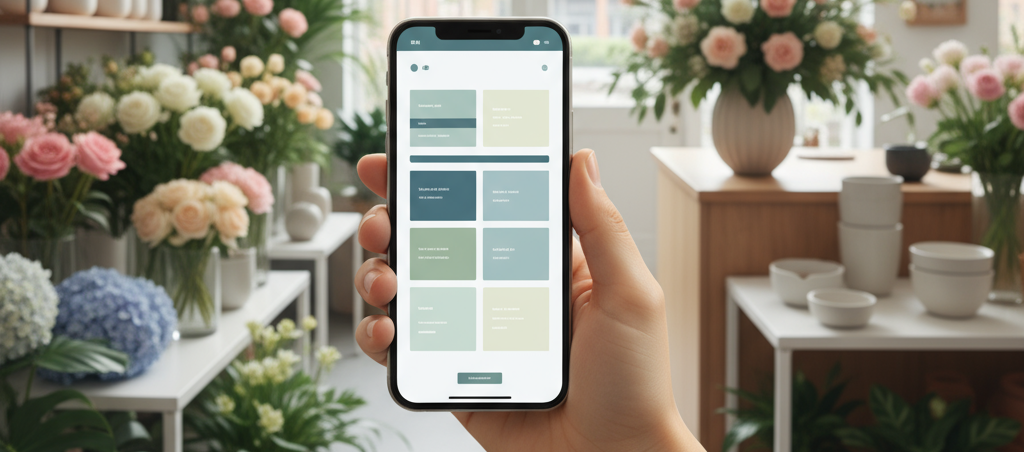
Why A Strong Website Still Comes First
Before talking about apps, it helps to start with the foundation. For most small businesses, a clear, mobile friendly website remains the first priority. Search engines, online directories, and social platforms usually send people to a website before anything else. That site becomes the front door where new visitors discover who you are, what you do, and how to contact you.
A mobile app plays a different role. Rather than acting as a front door, it behaves more like a private room for people who already know you and expect to return. Customers rarely download an app from a business they have never heard of. They download it once they trust you and believe they will come back regularly.
People spend most of their phone time inside apps, not in a browser, yet they only use a small group of those apps often. So the real challenge is earning a permanent place on someone’s home screen, not simply building an app. If your website already works well on mobile, loads quickly, and makes it easy to contact you or buy from you, an app becomes a second step rather than a first step. The app then focuses on deepening relationships with people who already like what you do.
Repeat Customers: The First Big Signal
One of the clearest signs that a mobile app might make sense is the presence of genuine repeat customers. If your business model depends on people coming back again and again, an app can turn that pattern into something smoother and more rewarding.
Think about how often the same names appear in your inbox or booking system. You might see regulars who visit every week for classes, every month for treatments, or every season for services. From their point of view, the journey can feel repetitive. They search for your name, open your website, tap through several pages, and fill in the same details every time. It works, yet it is not exactly effortless.
Now picture a different route. They tap one icon on their phone, see your services, and repeat a previous order or booking in a few seconds. Their details are already stored, their preferences are remembered, and they can see their history in one place. For them, it feels as if the business has been tailored around their habits. For you, it reduces friction and lowers the risk that they drift to a competitor while browsing around.
Keeping an existing customer often costs several times less than attracting a new one. The exact figure changes between sectors, yet the pattern stays the same. Retention tends to be more efficient than constant acquisition. If your business relies on one time purchases, an app is harder to justify. If your success depends on repeat visits, an app moves closer to a strategic tool. It becomes a way to reward commitment and make loyal customers feel recognised.
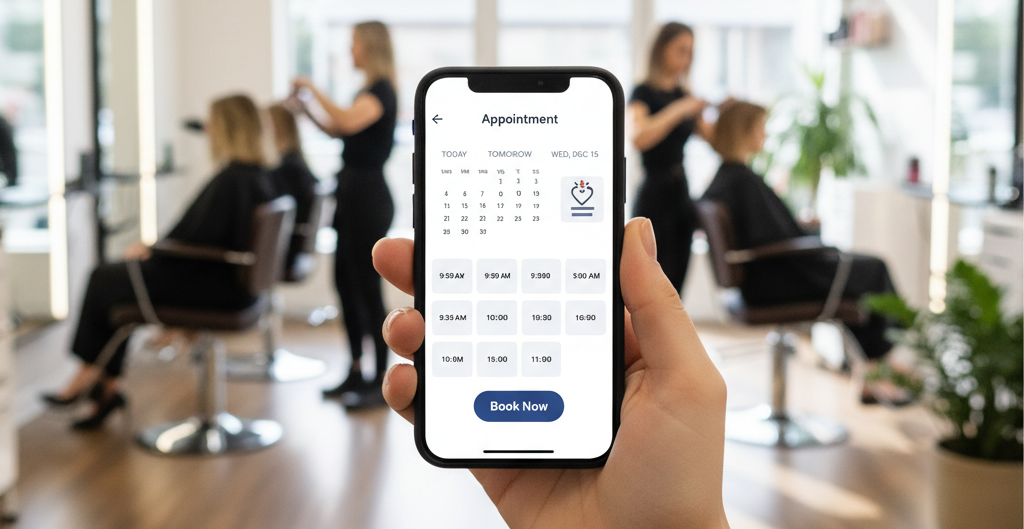
Bookings: When Convenience Becomes A Differentiator
For service based businesses, bookings often act as the heartbeat of the operation. Appointments, reservations, classes, and consultations all depend on people choosing a time and sticking to it. When bookings sit at the centre of your business, a mobile app can remove a surprising amount of friction.
Consider the typical booking journey without an app. A customer remembers they need to book, searches for your business, opens the website, and then navigates to a booking page. If they are busy or distracted, that journey can break at any step. If they have to phone during office hours, there is an extra barrier. A missed call can quickly turn into a missed booking.
With an app, the path becomes shorter. The customer taps the icon, sees available slots, and confirms a time. Their contact details are already saved. If they want to reschedule, they can do it in a few taps without waiting on hold. They can also see past and upcoming bookings clearly, which reduces confusion and no shows.
This convenience does not only benefit the customer. It also reduces admin work for you. Fewer phone calls, fewer back and forth messages, and fewer chances for misunderstandings. Over a month, that can save several hours that you can spend on higher value work.
When bookings flow through an app, you also gain a clearer picture of demand. You can see which days fill up quickly, which services are most popular, and which times often stay empty. That insight can guide decisions about opening hours, staffing, and promotions.
Many people prefer to arrange appointments outside traditional office hours. They browse on the sofa in the evening or during a commute. If your booking system only works when your phone line is open, you may miss those quiet moments when people are ready to commit. An app that accepts bookings at any time fits naturally into modern habits. If bookings are central to your business and customers return regularly, a mobile app can move from “nice idea” to “competitive advantage.”
Loyalty: Moving Beyond Stamp Cards
Loyalty is another major reason to consider a mobile app. Many small businesses already reward regular customers in some way. Coffee shops might use stamp cards, salons might offer a free treatment after a certain number of visits, and retailers might run occasional VIP events.
Physical loyalty schemes have clear limits. Customers forget their cards, staff forget to stamp them, and the business gains little insight into who the most loyal customers are. Rewards can feel random rather than intentional.
An app based loyalty programme changes that picture. Points and rewards can be tracked automatically. Customers can open the app and see exactly how close they are to their next benefit. That sense of visible progress makes loyalty feel more real and more motivating.
From your side, you can start to personalise rewards. A customer who always books a particular service can receive a reward related to that service. Someone who tends to visit at quiet times might receive a thank you that encourages them to keep that habit. Over time, loyalty stops being a one size fits all scheme and becomes something more tailored.
Downloading an app is a small commitment. It signals that the customer expects to return. A loyalty programme inside that app reinforces the feeling that they belong to your brand in a special way.
Experiments with loyalty cards show that people are more likely to complete a card if it starts with a couple of “free” stamps already filled in. An app can recreate this effect easily by giving new users a starting balance or a welcome reward. From the first day, they feel as if they have already made progress. If you want to move from casual loyalty gestures to a structured programme that encourages repeat visits and higher spend, an app can provide the structure and visibility you need.
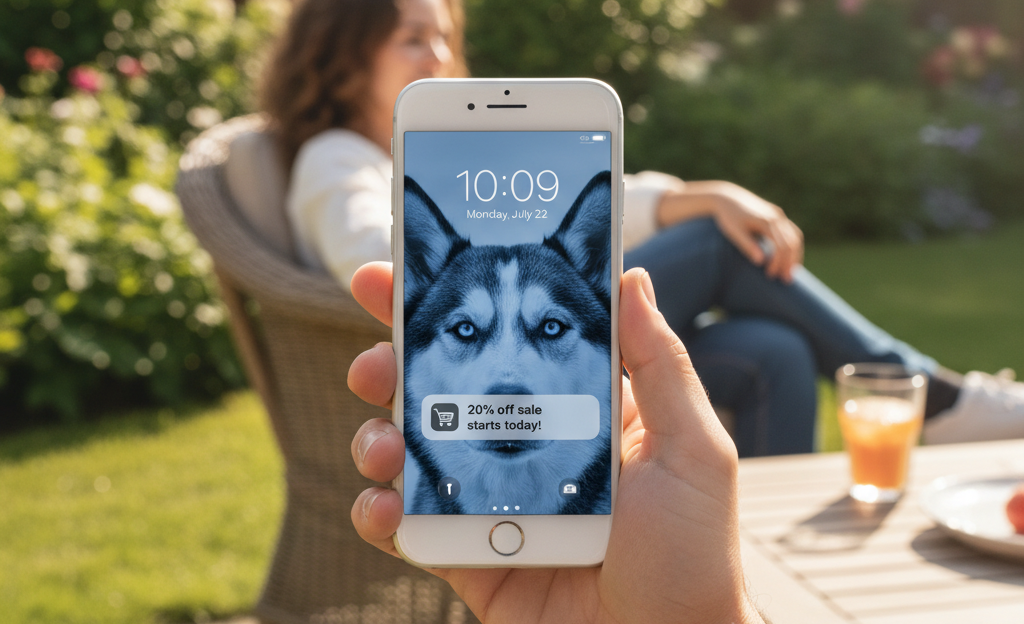
Push Notifications: Helpful Nudge Or Constant Noise?
Many people describe push notifications as one of the strongest reasons to build an app. They allow you to send messages directly to a customer’s phone, even when the app is not open. This can be very useful, yet it also carries risk. Used thoughtfully, notifications feel like helpful reminders. Used carelessly, they feel like spam.
The key question is whether you have clear, customer centred reasons to send messages. If you do, push notifications can keep your business present in a respectful way. If you do not, they can quickly irritate people and lead to uninstalls.
Start by thinking about moments when a short, timely message would genuinely help your customers. Appointment reminders reduce no shows and save embarrassment. Alerts that an order is ready for collection save wasted journeys. Notifications about a loyalty reward that is about to expire can prompt a visit that might not have happened otherwise.
You can also use notifications to highlight new products or services, as long as they are relevant. For example, if a customer regularly buys a particular item, a message about a related product or a limited offer can feel helpful rather than pushy.
People check their phones many times a day, often almost automatically. A short, well timed notification does not need to shout to be seen. It simply needs to appear at a moment when it makes sense.
The danger lies in sending too many generic messages. If every notification is a sales pitch, people will quickly disable them. Once they do that, you lose a valuable connection. So the decision is not just whether you want the ability to send notifications, it is whether you are willing to use that ability with restraint and care. If you can identify specific, helpful reasons to contact customers and you are ready to respect their attention, push notifications can turn your app into a quiet but powerful communication tool.
E-commerce: Turning Regular Buyers Into App Users
If e-commerce already plays a significant role in your business, a mobile app can change how customers browse and buy. Many people are comfortable shopping on their phones, and once they become regular buyers, they often prefer an app over a mobile website.
An app can store payment details securely, remember delivery addresses, and make repeat purchases very quick. It can also feel smoother than a browser. Product images load quickly, filters are easier to use, and the whole experience feels more like a dedicated shop and less like a general web page.
There is also room to blend online and offline behaviour. Customers can use the app to browse products, check stock, and reserve items for collection. You can run app only offers that reward people for buying directly from you rather than through third party platforms.
From your perspective, an e-commerce app provides clearer data on behaviour. You can see which products people view often, which ones they add to their basket and abandon, and which combinations they tend to buy together. That information can guide decisions about bundles, pricing, and promotions.
Over the past decade, the share of online shopping that happens on phones has grown rapidly. In many sectors, mobile purchases now represent a large portion of total online sales. People shop while watching television, during breaks, and while travelling. An app that makes that process simple can capture more of those spontaneous orders.
If online sales are only a small side activity, an app might not be essential. If e-commerce sits at the centre of your business and you already have repeat buyers, an app can deepen those relationships and increase lifetime value.

Bringing The Decision Points Together
When you look at repeat customers, bookings, loyalty, push notifications, and e-commerce side by side, a pattern appears. A mobile app tends to make sense when your business already has a base of engaged customers and you want to make their lives easier, their experience more personal, and your operations more efficient.
If you are still in the early stages of building awareness and attracting your first customers, a clear website and consistent marketing will usually deliver more value than an app. Once you have a steady flow of repeat business, an app becomes a way to strengthen that connection rather than a way to create it from nothing.
It can help to ask yourself a few straightforward questions. Do people come back to us regularly? Do they book or buy often enough that an app would save them time? Would a digital loyalty programme feel natural for our customers? Do we have meaningful reasons to send notifications that help them, not just us? Is online purchasing already part of how they interact with us?
If you find yourself answering yes to several of these, then exploring a mobile app becomes a logical next step in the growth of your customer experience.
Start With People, Then Choose The Tools
The decision about a mobile app should begin with people rather than technology. Think about how your customers discover you, how they buy from you, and how they come back. Notice where they encounter friction and where they feel delighted.
A mobile app is one possible way to remove friction and add delight. It can streamline bookings, turn loyalty into something visible, support convenient e-commerce, and provide gentle reminders through push notifications. It can also sit unused on a phone if it does not solve any real problem.
The most successful small business apps tend to feel like a natural extension of the relationship that already exists. They respect the customer’s time, they make everyday tasks easier, and they reward commitment in clear and simple ways.
If you approach the question with that mindset, you are far more likely to create an app that earns its place on your customers’ phones and supports your business goals, rather than becoming a costly experiment that never quite finds its purpose.

What To Do Next
If you are still unsure whether an app makes sense for your business right now, start with a simple review of your current customer journey. Look at how people find you, how often they return, and where they get stuck. Pay particular attention to repeat bookings, regular purchases, and any informal loyalty habits you already see.
From there, sketch a short story for your ideal customer. Imagine how their experience would change if they could book, buy, and collect rewards from a single icon on their phone. If that story feels natural rather than forced, you are probably close to the point where an app can add real value.
The next step is a structured conversation, not a leap into development. Talk through your goals, your current website, and the role you want an app to play alongside it. Clarify whether your priority is smoother bookings, stronger loyalty, better communication, or more convenient e-commerce. Once that is clear, it becomes much easier to choose the right app package and avoid paying for features you do not need.
When you are ready to explore this properly,
call MidDevon Digital to talk through your app needs. Bring a few examples of the customers you would most like to serve better, along with any questions about bookings, loyalty, push notifications, or e-commerce. Together, you can decide whether now is the right moment to move from “Do we need an app?” to “This is how our app helps our customers every day.”







